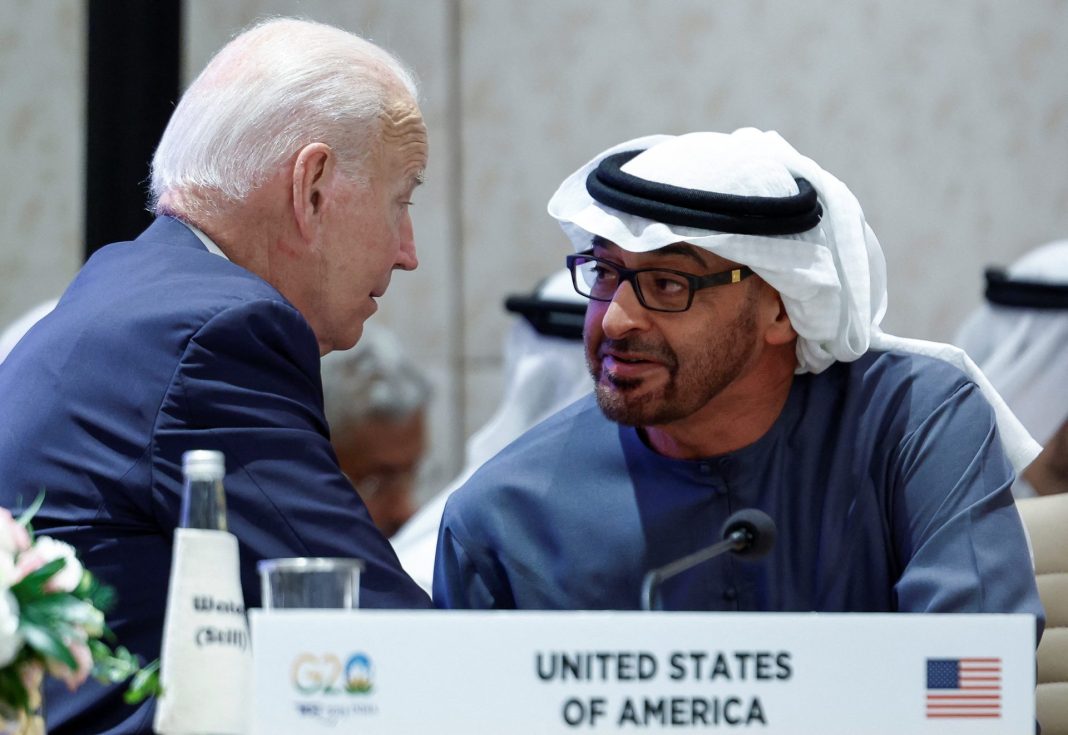Senator Chris Van Hollen and Congresswoman Sara Jacobs sent President Biden a letter, warning that the lawmakers will call for a vote on a resolution of disapproval over the sale of offensive weapons to the UAE, including $1.2bn worth of rockets and missiles, unless Biden certifies that the UAE is not supporting the RSF.
“We are deeply concerned about reports that the UAE has provided materiel support, including arms and ammunition, to the Rapid Support Forces (RSF) amid the civil war in Sudan and believe that the United States should pause offensive arms sales until such support has ceased,” the letter stated.
“If your administration provides written confirmation that the UAE is not supplying the RSF with weapons and has committed to refrain from future such transfers, then we will have accomplished our goal and will not need to call for a vote on this legislation in Congress.”
Sudan’s war between the army and the paramilitary RSF began in April 2023, sparking what the UN calls the world’s “worst” displacement crisis.
The war in Sudan has been largely ignored by the Biden administration as it finds itself mired in Israel’s war on Gaza and Lebanon.
More than eight million people have been uprooted internally, and more than three million have fled abroad as a result of the fighting.
The northeast African country is on the brink of famine, according to aid agencies, and a UN investigation found both sides have committed rights abuses, with the RSF particularly implicated in sexual violence.
The RSF is commanded by Mohamed Hamdan Dagalo, also known as Hemeti. The US has privately accused the UAE of supporting the RSF, and a leaked UN report has detailed Emirati support for the militia.
The Sudanese military is backed by Qatar and Iran, along with Egypt and Russia. Saudi Arabia, an Emirati ally increasingly acting as a rival, has also backed the Sudanese military, according to The New York Times.
A senior US official previously stated on the condition of anonymity that many US officials viewed the UAE as the “enabler” of the war but that the administration was “too distracted” to seriously press Abu Dhabi over its support.
In September, Biden named the UAE a major defence partner, a step that could make it eligible to purchase more sophisticated US weapons and technology.
According to Politico, several US officials working on Africa policy are angry over what they see as the US’s “double standard”, slamming Russian war crimes in Ukraine but refusing to push back harder against the UAE in Sudan.
According to the NYT, Vice President Kamala Harris raised the issue in a December meeting with UAE President Mohamed bin Zayed al-Nahyan.
The lawmakers noted “ample evidence” that the UAE was supporting the RSF, adding that Biden’s own UN ambassador, Linda Thomas-Greenfield, had challenged the UAE publicly over its role in the war.
“We support a mutually beneficial bilateral relationship with the UAE and are not seeking to permanently end arms sales. However, a partnership with the United States should not come with a blank check,” the lawmakers wrote.
“The US should not be sending weapons to the UAE so long as it is aiding and abetting a group that is one of the primary drivers of the humanitarian disaster in Sudan,” they added.
The UAE denies supporting the RSF and has bristled at accusations of its role in funding a group the US says is conducting ethnic cleansing.
Last year, the US sanctioned Hemeti’s brother, Algoney Hamdan Dagalo, who lives in the UAE, where US officials say the RSF conducts lucrative gold trading.
The lawmakers welcomed Biden’s sanctions but stated more needed to be done.
